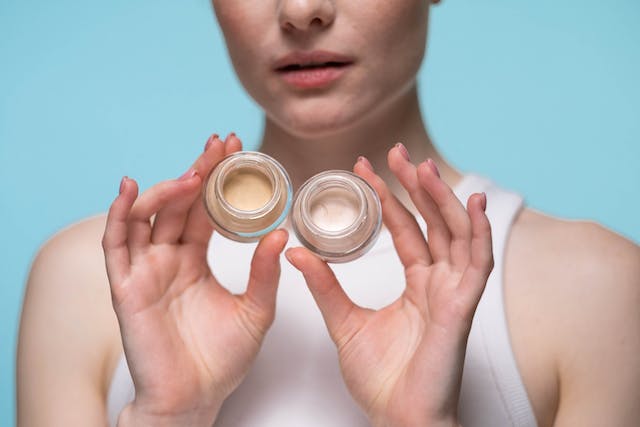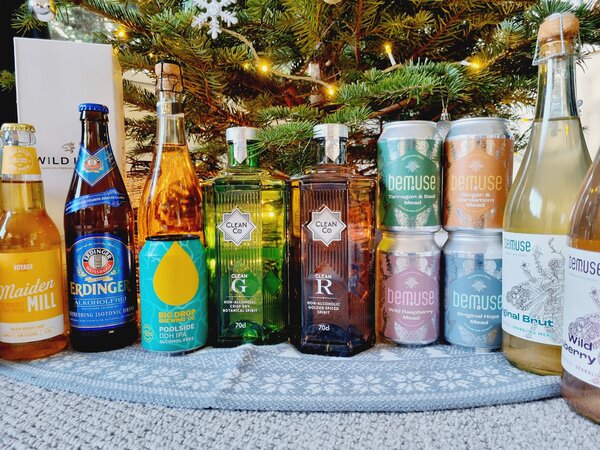MYTH VS. FACT: DEBUNKING COMMON MISTAKES ABOUT ORGANIC COSMETICS AND NATURAL COSMETICS

In the world of beauty and skin care, “organic” or “natural” has become more than a buzzword. They are now a conscious decision for those who want to adopt a sustainable, healthier approach to their beauty regimens. The myths that surround these products are increasing as their popularity grows. This blog will dispel myths surrounding organic and natural cosmetics. We’ll focus on makeup, and explore the diverse landscape of cosmetics available in Australia. You’ll have the knowledge you need to make an informed decision, confidently navigate the beauty aisle and appreciate the unique Australian natural cosmetics.
Myth #1 All Natural Products are Organic
Let’s be clear: not all organic products are natural. The terms may seem interchangeable, but they have different meanings. Natural means that the ingredients come from nature but does not guarantee the absence synthetic chemicals. Organic farming is a commitment towards sustainable, chemical-free practices.
To ensure that you are buying a genuine organic product, look for certifications like USDA Organic or COSMOS. Do not be fooled if the label says “all-natural”. Always check the ingredients list.
Myth #2: Organic Cosmetics Are Less Effective
It’s a misconception that organic products are less effective than conventional ones. This myth is often based on the idea that products must contain synthetic chemicals to be effective. The truth is, many natural ingredients are highly effective.
Organic skin care formulations are often based on botanical extracts, anti-oxidants, and essential oils to promote external beauty and skin health. Organic cosmetics are as effective or more so than chemical-laden alternatives.
Myth #3 All Chemicals in Cosmetics are Harmful
Let’s dispel the myth that all cosmetic chemicals are harmful. Even water is composed of chemicals. It is important to know the difference between synthetic toxic chemicals and safer ones.
Synthetic and natural ingredients may be harmful to some people, but they can also be safe. It is important to educate yourself. If in doubt, ask a dermatologist. It’s all in the details. A little information about ingredients can help you make informed decisions.
Myth #4: Organic Cosmetics are Expensive and Inaccessible
Contrary to what many people believe, organic beauty doesn’t need to be expensive. Some high-end brands can be expensive, but there are plenty of affordable options.
Many brands have made organic makeup affordable to everyone. Local and independent brands with quality ingredients at a reasonable price are the best to look for. Organic skincare can seem expensive at first. The long-term benefits to your skin and environment can often outweigh any initial cost.

Myth #5: Natural Means Non-Allergenic
We need to stop believing that all natural ingredients are non-allergenic. Although natural products seem to be gentler than other products, some people can still develop allergies. Lavender, chamomile and certain essential oils are common natural allergens.
Patch testing is a must before adding new products to your regimen. Understanding your skin’s sensitivities and common allergens is crucial to a harmonious relationship between natural beauty products.
Myth #6 Organic Cosmetics don’t have a shelf life
It is a common myth that organic products are less shelf-stable and lack preservatives. Organic cosmetics use natural preservatives in order to maintain their efficacy.
By understanding the ingredients and following storage guidelines, you can extend your product’s shelf life. Organic cosmetics are best stored in a dry, cool place, away from direct sunlight.
Myth #7 – “Fragrance free” means chemical-free
We’ll end with the final myth, which is that “fragrance-free” does not necessarily mean chemical-free. Some products labeled as fragrance-free still contain masking ingredients to neutralize other ingredients’ scents.
If you have sensitive skin or a fragrance allergy, choose products that are explicitly marked “unscented”. You can also opt for natural scents made from essential oils. It is important to read the ingredient list and understand where the fragrance comes from in order to reduce exposure to chemicals.


MOST COMMENTED
FITNESS / Health
How To Build Muscle In A Healthy Way: A Comprehensive Guide
FITNESS / Health
5 REASONS WORKOUT CLASSES FOR AGE-INCLUSIVE PEOPLE ARE GAME-CHANGERS
Health / HOME
KEEPING YOUR CLINIC UP WITH THE TIMES
HOME / Wellbeing
TIPS FOR MOVING A TINY HOME
FITNESS / Health
HOW TO FIND AN ACTIVITY YOU LOVE TO HELP YOU STAY ACTIVE
FITNESS / Health
The 3 Best Reasons To Incorporate Cannabis Into Your Fitness Routine
HOME / Wellbeing
Winter Wellbeing: Self-Care Strategies For Managing Seasonal Affective Disorder
HOME / Wellbeing
DON’T FORGET THESE ESSENTIALS THE NEXT TIME YOU HEAD OUT OF TOWN
Health / HOME / Wellbeing
UK FOREST HOLIDAYS: YOUR GUIDE TO EMBRACE NATURES PLAYGROUND
FITNESS / Health
Fitness Coaches: 3 Top Tips To Stay Motivated